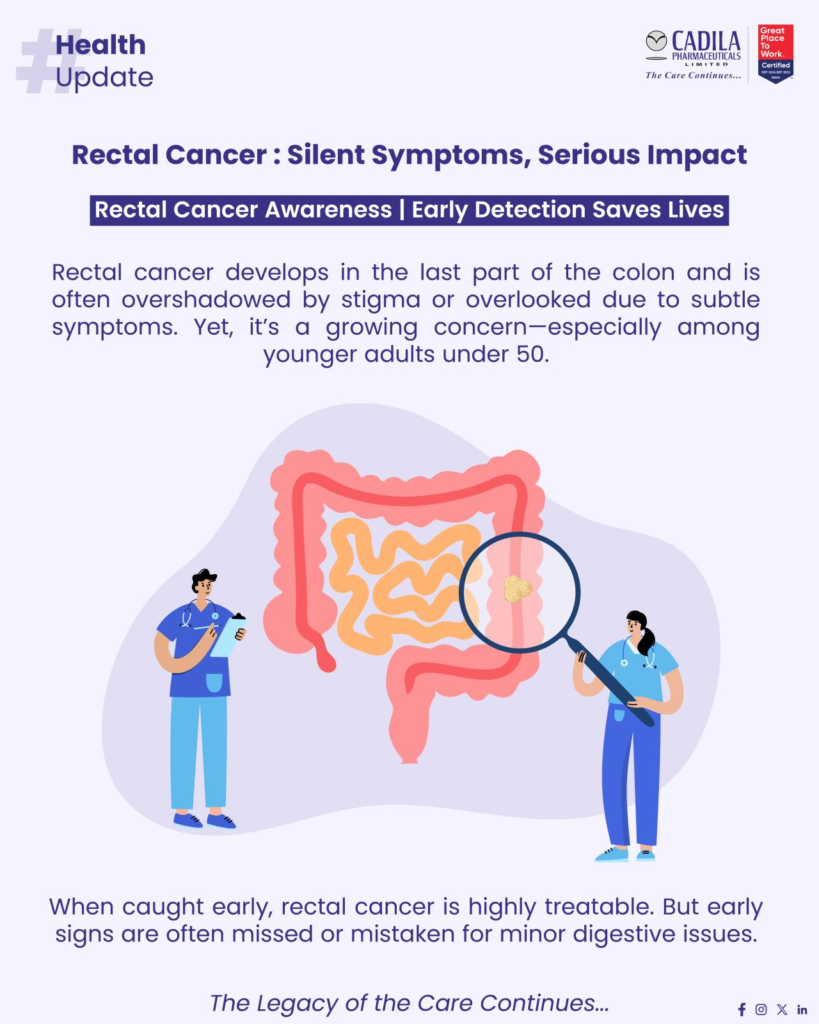Rectal cancer, a growing concern, often goes unnoticed due to subtle signs. Early detection is critical for effective treatment. Awareness can save lives by encouraging timely screenings and open conversations about colorectal health.
Contents
Understanding Rectal Cancer
Rectal cancer develops in the rectum, the final part of the colon. It’s increasingly affecting younger adults under 50. Stigma and lack of awareness often delay diagnosis, making education vital for prevention and early intervention.
Key Symptoms to Watch For
Symptoms of rectal cancer can be mistaken for minor digestive issues. Recognizing these signs early can lead to better outcomes. Stay vigilant and consult a doctor if you notice any of the following:
- Rectal bleeding or blood in stool
- Persistent changes in bowel habits
- Ongoing abdominal discomfort or cramping
- Unexplained weight loss or fatigue
- Constant urge to pass stool, even after going
Why Early Detection Matters
Early-stage rectal cancer is highly treatable, with improved survival rates. Regular screenings, like colonoscopy or FIT tests, can detect cancer or precancerous polyps, preventing progression and enhancing quality of life.
Risk Factors for Rectal Cancer
Understanding risk factors helps in prevention. Lifestyle changes and screenings can reduce your risk significantly. Key factors include:
| Risk Factor | Description |
|---|---|
| Family History | Increased risk if a close relative had colorectal cancer |
| Inflammatory Bowel Disease | Conditions like Crohn’s or ulcerative colitis elevate risk |
| Sedentary Lifestyle | Lack of physical activity contributes to higher chances of developing cancer |
| Low-Fiber Diet | Diets lacking fruits, vegetables, and whole grains increase risk |
The Importance of Screening
Screening is a powerful tool for prevention. Colonoscopy can detect polyps before they turn cancerous. FIT tests are non-invasive and effective. Discuss screening options with your doctor to stay proactive.
Treatment and Survival Rates
Timely treatment, including surgery, radiation, or chemotherapy, significantly improves outcomes. Early detection can lead to a 90% survival rate for localized rectal cancer, according to the American Cancer Society.
Breaking the Stigma
Talking about rectal and colorectal health is crucial. Normalize these conversations to reduce embarrassment and encourage early detection. Share knowledge with loved ones and promote regular screenings to save lives.
Take Action Today
Don’t ignore subtle symptoms. Schedule a screening, especially if you’re at risk. Visit Cancer.org for resources or consult your healthcare provider. Early action can make all the difference in fighting rectal cancer.


Read the Official Post from Cadila Pharma


